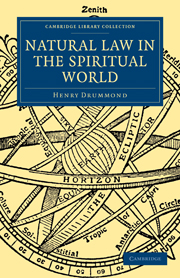Summary
“The Situation that has not its Duty, its Ideal, was never yet occupied by man. Yes, here, in this poor, miserable, hampered, despicable Actual, wherein thou even now standest, here or nowhere is thy Ideal: work it out therefrom; and working, believe, live, be free.”
Carlyle.“Work out your own salvation.”
—Paul.“Any new set of conditions occurring to an animal which render its food and safety very easily attained, seem to lead as a rule to degeneration.”
—E. Ray Lankester.Parasites are the paupers of Nature. They are forms of life which will not take the trouble to find their own food, but borrow or steal it from the more industrious. So deep-rooted is this tendency in Nature, that plants may become parasitic—it is an acquired habit—as well as animals; and both are found in every state of beggary, some doing a little for themselves, while others, more abject, refuse even to prepare their own food.
There are certain plants—the Dodder, for instance—which begin life with the best intentions, strike true roots into the soil, and really appear as if they meant to be independent for life. But after supporting themselves for a brief period they fix curious sucking discs into the stem and branches of adjacent plants. And after a little experimenting, the epiphyte finally ceases to do anything for its own support, thenceforth drawing all its supplies ready-made from the sap of its host.
- Type
- Chapter
- Information
- Natural Law in the Spiritual World , pp. 315 - 338Publisher: Cambridge University PressPrint publication year: 2009First published in: 1883

